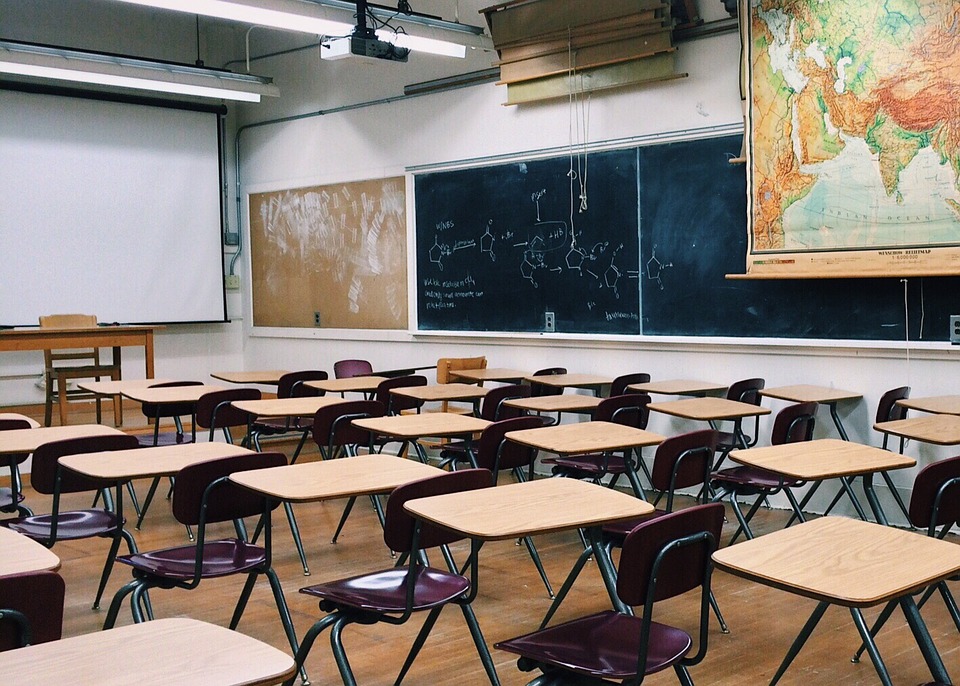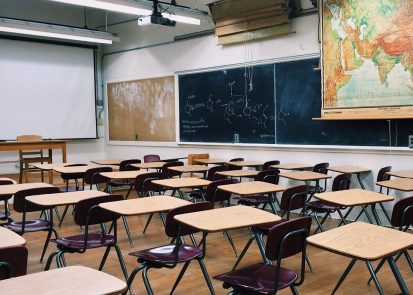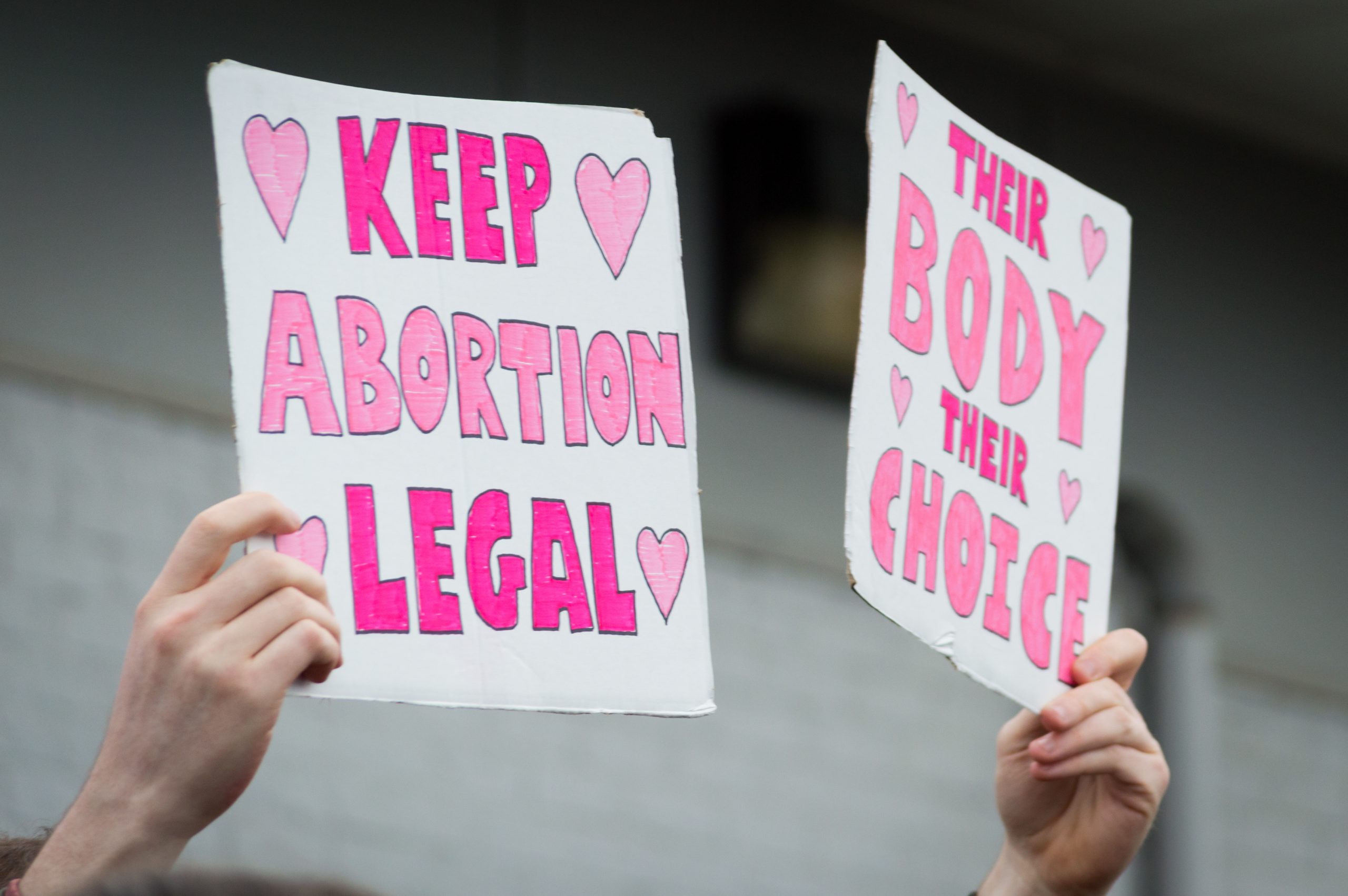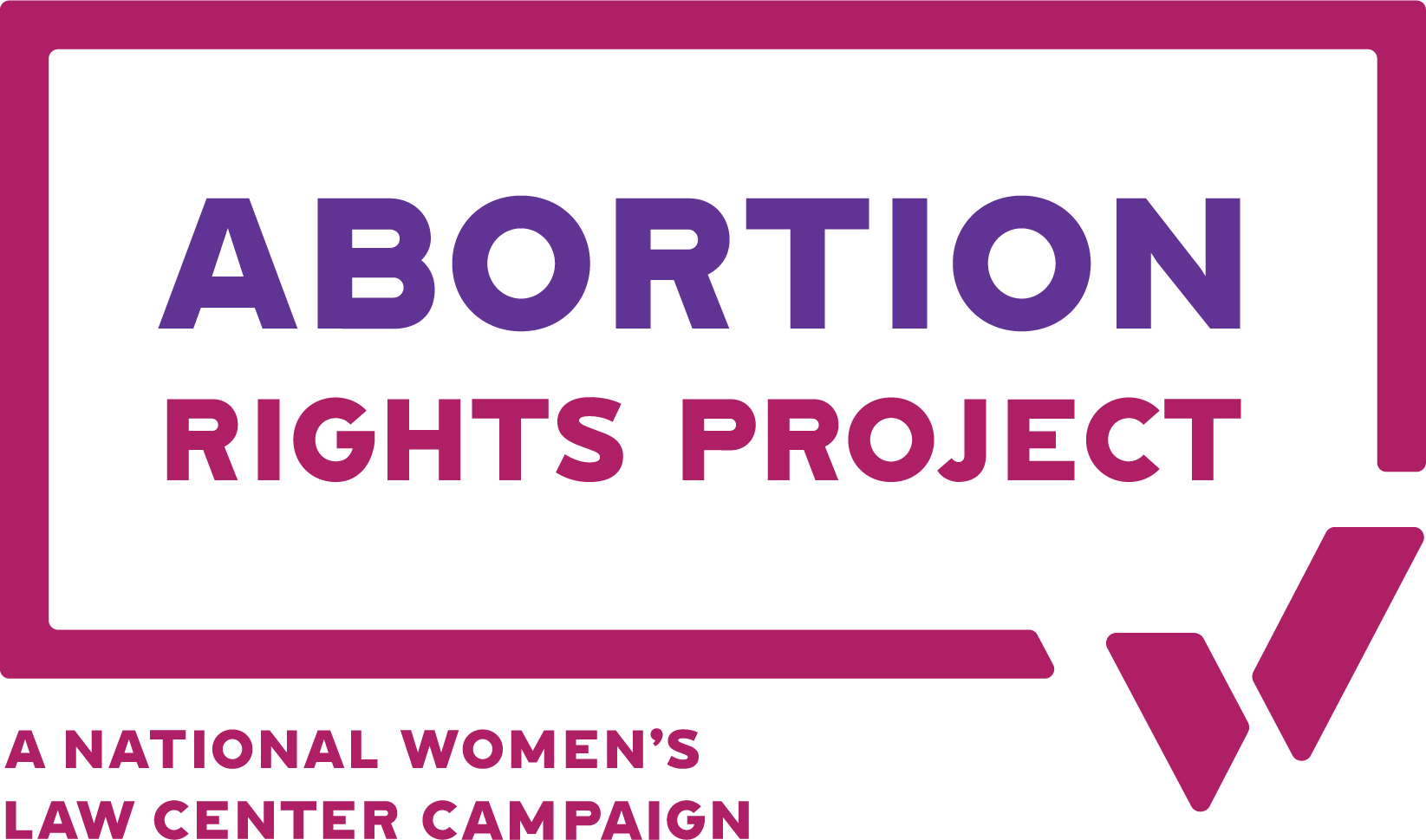Abortion rights, women of color, and LGBTQIA+ people are under attack. Pledge to join us in fighting for gender justice.
Abortion Rights Are Student Rights

 Over the last few months, eight states have passed laws aimed at destroying women’s right to choose an abortion. One thing has become especially clear: the legislators who are after our abortion rights have no idea what they’re talking about.
Over the last few months, eight states have passed laws aimed at destroying women’s right to choose an abortion. One thing has become especially clear: the legislators who are after our abortion rights have no idea what they’re talking about.
One legislator assured that his state’s abortion ban wasn’t actually a ban because a woman could still get an abortion “until she knows she’s pregnant.” Another fumbled with questions about whether his legislation would keep insurance companies from paying for Plan B and some types of birth control. He ended by saying something already painfully obvious: “I don’t know because I’m not smart enough to know what causes abortions and what doesn’t.”
Maybe they skipped biology class. Maybe they’ve never listened to a woman. Either way, these men can’t stop telling on themselves. It would be funny if it weren’t so scary. But it is frightening: These legislators’ lack of education is now threatening the education of girls and women.
We often don’t think about abortion as an “education issue,” but the truth is, abortion is directly tied to education access. Pregnancy and parenting issues impact school-aged girls and women, including those in middle and high school. Although teen pregnancy rates have been trending downward, many students still find themselves pregnant in high school. Teen childbirth rates are higher for students who come from poorer families or economically neglected communities, as well as for Native American, Latinx, Black and Pacific Islander students. (One thing we may never know is whether teen childbirth rates may be higher for these girls and women because, compared to their white, Asian or wealthy peers, they have less access to abortion services that would help them end a pregnancy.)
Choosing if, when, and how to start a family is a basic human right. That includes choosing whether to have an abortion or have a child while getting a diploma or degree—free from the threat of being punished by old men who can’t get pregnant and who admit they don’t know what they’re talking about.
Pregnancy or parenting shouldn’t stop girls and women from learning. (Title IX even says so.) Unfortunately, it often does. It’s not that pregnant or parenting students are failing—actually, their schools are failing them.
Pregnant and parenting students often lack the resources and support they need to succeed. Teachers and principals may refuse to be flexible with assignments and scheduling. Students may get in trouble for being absent for medical appointments or to care for their child. And even though it’s against the law, some schools have had policies of discriminating against pregnant students. In the not-too-distant past, a Louisiana high school forced students to take pregnancy tests. The school kicked out students whose tests were positive.
What’s more frustrating is that young mothers say having a child gave them more motivation to succeed academically—even if they were previously disengaged in school. Schools and communities could harness this motivation and actually give young parents the resources they need to thrive as parents and students. Instead, young mothers get the opposite—resulting in two in five students who become pregnant before age 18 being pushed out of school.
The states enacting abortion bans—Alabama, Ohio, and Missouri, to name a few—don’t seem to be concerned with protecting pregnant and parenting students from discrimination and being pushed out of school. No state that has passed an abortion ban has also put forth a plan for flexible school programming, child care, or support services for students who would be impacted by these bans.
Suspiciously, the states passing these attacks on our rights also don’t seem to be concerned with preventing unintended pregnancies that may result in abortion.
In Alabama, which has one of the highest teen pregnancy rates in the country, schools aren’t even required to have a sex education curriculum. When schools do provide sex ed, the law indicates that it must be heavily focused on abstinence—even though abstinence-focused sex education has been proven ineffective in preventing unintended pregnancies and may actually harm young people. Alabama schools are not required to teach students about effective contraceptive methods or help students access birth control that could prevent unintended pregnancies. And while Alabama legislators are making an effort to update this law, the proposed update would still allow schools to refuse to provide any sex ed at all.
The restrictive abortion law recently passed in Alabama would force victims who become pregnant via rape to carry their pregnancies to term. Nationwide, one in five high-school-aged girls have been sexually assaulted. But Alabama schools aren’t required to educate students about consent, even though consent education may prevent boys and men from raping or assaulting women who might then become pregnant.
Policies like these completely rob girls and women of their opportunities to make the sorts of informed reproductive choices that would allow them to stay in school and which may decrease their need for abortion services over time. It’s almost as if abortion bans are more about controlling women and girls than they are preventing abortion. (They are.)
Not every pregnant student will choose abortion. Many pregnant and parenting students succeed in their educations in the face of challenges and discrimination. But considering the weight of these challenges, protecting the right to choose if, when, and how to have a family is a fundamental educational justice issue.
In the past few weeks, women have shared stories on social media about how an abortion was the right choice to help them to keep learning. One woman tweeted, “Here’s the tea. I got an abortion my senior yr of high school & it gave me the opportunity to finish school, get two degrees & have the future that I wanted; not one that was forced upon me.” Another said, “My 2001 abortion allowed me to finish, high school, college, start my MA, travel the world, build a business w/my hubs.” Stories like this are common: one out of every seven women who choose abortion says that continuing her education is a reason she chose to end the pregnancy.
Choices about managing education and parenting are personal and powerful. Every student should have the rights and resources to make these choices for her family, her education, and herself. Abortion bans threaten these choices.
The legislators pushing for these anti-choice laws don’t seem to know much about reproductive health. But when it comes to harming women, they know exactly what they’re doing. Laws like this are aimed at taking options away from women and “putting us in our place.” But our place is where we say it is—in the classroom—regardless of whether we have a child or an abortion. We will demand our right to choose abortion because we know that it protects our right to choose when and how we pursue an education. And we’re ready to school any confused legislator who tries to stop us.




